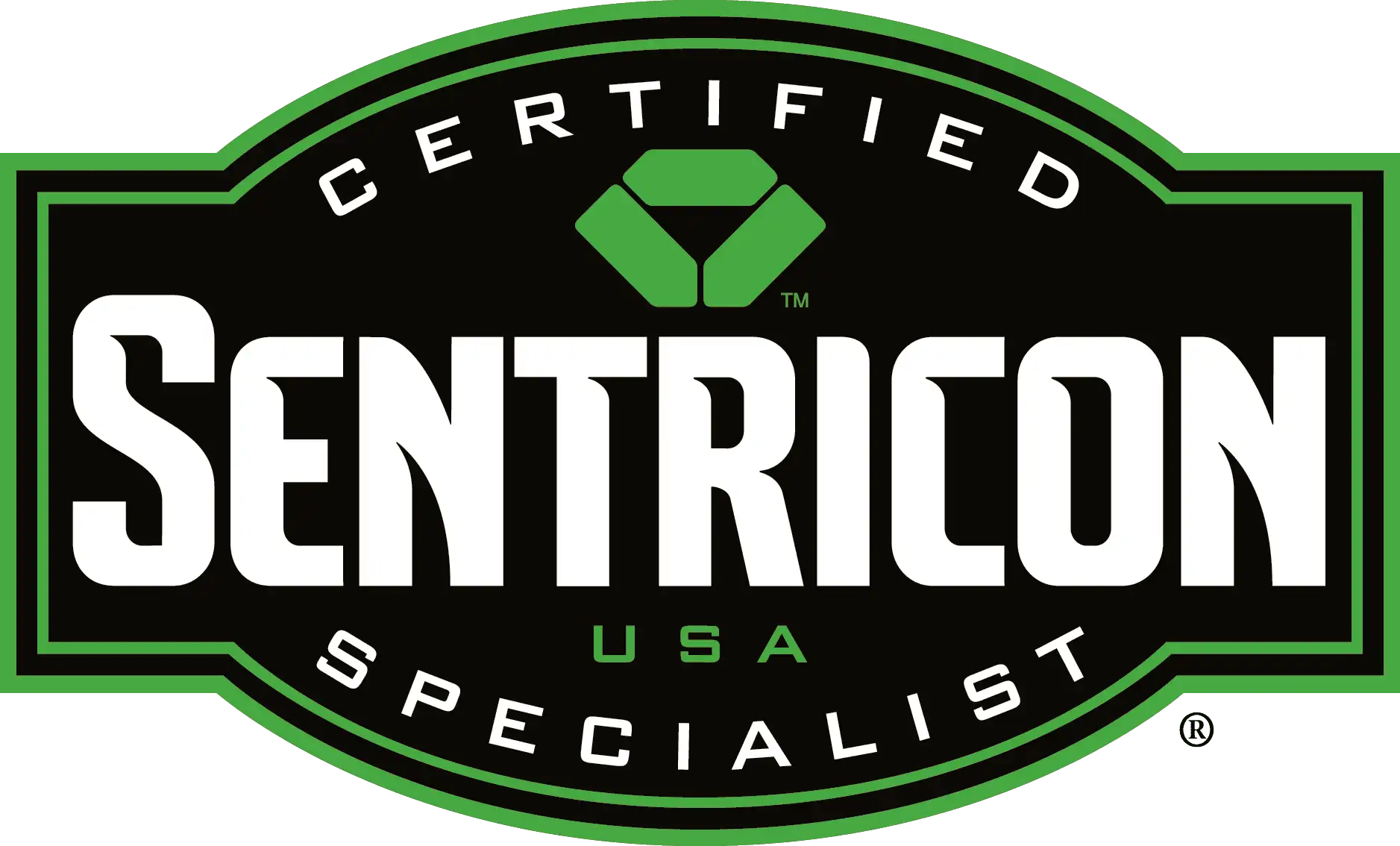Home and business owners in Biloxi, MS, know too well the challenges pests can bring, not least of which are skunks. Their notorious smell can turn your property into a no-go zone. Paramount Pest Solutions is here with safe, effective skunk removal strategies to keep your spaces pleasant and skunk-free. 🏡💼
Understanding Skunks: More Than Just a Smell 🦨
Skunks, while known for their potent defense mechanism, are generally non-aggressive creatures that prefer to keep to themselves. They are nocturnal and can become a nuisance, especially if they decide to make your property their home.
Why Skunks Might Visit Your Property
Skunks are known for their distinctive black and white coloring and their potent spray, but what draws them into human habitation in the first place? Understanding the “why” can help you take proactive measures to discourage these creatures from seeing your property as an ideal home.
Food Sources
Skunks are omnivorous creatures, meaning they eat both plant and animal materials. Their diet is quite varied and includes insects, grubs, small rodents, fruits, nuts, and garbage. This diet flexibility means they are constantly on the lookout for easy meals, which can unfortunately include the contents of your trash can, your well-tended vegetable garden, or even pet food that has been left outside overnight. Here’s a deeper look into why these food sources are so attractive to skunks:
Trash cans: Open or easily tipped trash cans provide a veritable feast for skunks. The smell of leftovers or even just the general scent of garbage can attract skunks from a distance.
Gardens: Your garden is not just a source of pride for you but also a buffet for skunks. They are particularly fond of ripe berries and fruits that might fall to the ground, as well as the insects that your garden might host.
Pet food: Pet food left outside is an easy meal for a skunk. The high protein and fat content in pet food are highly appealing, and the consistent availability of such food can encourage skunks to return repeatedly.
Shelter
Aside from food, shelter is a primary concern for skunks, especially when they are looking to nest. Skunks are primarily nocturnal, seeking safe, quiet places to rest during the day before they venture out at night to feed. Here’s why certain areas of your property might seem appealing:
Under decks, sheds, and porches: These areas provide skunks with the dark, undisturbed environment they need for their dens. They’re often quiet, shielded from predators, and can be quite warm, offering an ideal nesting spot.
Crawl spaces: The underneath parts of houses, especially those with access gaps, are perfect for skunks. These spaces are typically dark, rarely disturbed, and large enough for a skunk to move around in.
Brush piles and wood stacks: In addition to man-made structures, skunks may also take shelter in more natural formations like brush piles, wood stacks, or under thick vegetation. These areas mimic the skunk’s natural habitat, providing both camouflage and protection.
Identifying a Skunk Problem
Identifying a skunk problem early can save you a lot of trouble down the line. Here’s how to spot the telltale signs that skunks have taken a liking to your property:
Sightings at Dusk or Dawn
Skunks are nocturnal animals, which means they’re most active during the night. However, their activity periods extend into the twilight hours of dusk and dawn. If you start noticing skunks around your property during these times, it’s a strong indicator they may be living nearby. Skunks have a distinctive black and white coloring that makes them relatively easy to spot, even in low light. Regular sightings suggest that a skunk or even a family of skunks has taken up residence on your property and is venturing out to forage for food.
Holes in Your Lawn or Garden from Skunk Foraging
Skunks are omnivores with a particular taste for grubs and insects, which they find in the soil. Their method of foraging involves using their sharp claws to dig small, cone-shaped holes in the ground as they search for food. These holes can be quite destructive to lawns and gardens. If you start noticing these types of holes appearing overnight, it’s a clear sign that skunks are foraging in your area. The damage can range from minor, with a few holes here and there, to quite extensive, affecting the aesthetics and health of your lawn or garden.
The Unmistakable Odor Lingering Around Your Property
Perhaps the most obvious sign of a skunk problem is the presence of their notorious odor. Skunks release a potent spray from glands near their tail as a defense mechanism. This spray has a strong, pungent smell that can linger in the air for days. If you detect this unmistakable scent around your property, it’s a clear indication that a skunk has felt threatened enough to use its spray nearby. The smell can be overwhelming and is often the first sign that alerts property owners to a skunk presence, even if they haven’t seen the animal directly. This odor can seep into outdoor fabrics, under decks, or into crawl spaces, making it a persistent and unpleasant reminder of the skunk’s visit.
Additional Signs
Beyond these primary indicators, there are other signs you might notice if skunks are frequenting your property:
Tracks: Skunk tracks resemble those of a cat but with five toes and visible claw marks. Finding these tracks in soft soil, snow, or mud around your property can indicate skunk activity. Also look for holes. Skunks dig small holes in search of grubs and earth worms.
Fur: Finding tufts of black and white fur can be another sign of a skunk’s presence. This could result from the skunk shedding naturally or as a result of a skirmish with another animal.
Noises: Skunks themselves are relatively quiet, but the sounds of them rustling through your trash, digging, or even the distressed noises of pets can indicate their presence.
Safe Skunk Removal Strategies 🚫🦨
When it comes to skunks, prevention is key, but sometimes removal becomes necessary. Here’s how to do it safely and humanely:
1. Remove Attractants
Skunks are drawn to easy food, water, and shelter. Removing these attractants can greatly reduce the likelihood of skunks taking up residence on your property.
Secure your garbage cans: Use cans with locking lids or strap the lids down. This keeps skunks out and prevents them from being rewarded with food, making your property less attractive.
Remove pet food from outside: Never leave pet food or kitty litter outdoors overnight as it’s a strong attractant for skunks and other wildlife. Feed pets indoors or remove the food bowls after feeding.
Restrict access to food sources like bird feeders: Bird feeders can attract skunks due to the seeds that fall to the ground. Consider pole-mounted feeders with trays to catch falling seeds or take feeders in at night.
Water your lawn less frequently: Overwatering your lawn can attract grubs, a favorite food source for skunks. Less watering means fewer grubs and less skunk attraction.
2. Make Your Property Unwelcoming
Creating an environment that skunks find unattractive or scary can deter them from coming too close.
Install motion-sensor lights: Skunks are nocturnal and prefer to forage in the dark. Bright lights that suddenly turn on can startle or scare skunks and discourage return visits.
Use automated sprinklers: Similar to motion-activated lights, motion-activated sprinklers can startle skunks and other wildlife, making your property less appealing.
Seal off access points: Inspect your property for potential skunk shelters such as openings under decks, porches, and sheds. Seal these spaces off with sturdy materials to prevent skunks from nesting.
3. Humane Removal and Relocation
If skunks have already made your property their home, you might need to consider removal. This should always be done with the safety and well-being of the animal in mind.
Live trapping: This should be considered a last resort and done very carefully. It’s important to use a covered cage trap to reduce stress on the trapped skunk. Bait the trap with fruits or other non-meat items to avoid attracting cats or dogs. Always check local regulations regarding trapping and relocating wildlife, as it may be illegal or require a permit in some areas.
Check the trap frequently: To minimize stress on the animal, check the trap often. If you’ve caught a skunk, cover the trap with a tarp for transport to reduce stress and prevent spraying.
Professional help: The safest and most humane way to deal with skunk removal is to call in professionals like Paramount Pest Solutions. Our experts are trained in safe handling and relocation techniques, ensuring the skunk is not harmed during the process. We also take into consideration local wildlife laws and regulations to ensure that the relocation is done legally and ethically.
Dealing with Skunk Spray 🛁
Dealing with a skunk’s spray is an experience many hope to avoid, yet it’s crucial to know what to do if it happens. Skunk spray is not only unpleasant but can also cause irritation and temporary blindness if it gets in the eyes. Here’s how to neutralize skunk odors and tackle the cleanup effectively:
If You or a Pet Gets Sprayed:
Act Quickly
The key to minimizing the skunk odor is to act as quickly as possible. Skunk oil can penetrate the skin and fur deeply if left untreated, making the odor more difficult to remove.
- Avoid water at first: Interestingly, water can cause the oils to spread and penetrate deeper into fabrics or fur. Start with dry treatments before rinsing.
Use a De-Skunking Shampoo for Pets
There are commercial de-skunking shampoos available specifically designed to neutralize and remove skunk odor from pets. If you’re in an area where skunks are common, it might be wise to keep a bottle on hand.
- Follow the instructions carefully on the shampoo to ensure it’s as effective as possible.
Homemade Solution for Humans and Pets
If you don’t have a commercial shampoo available, a homemade mixture can be quite effective. The most recommended formula includes:
- 1 quart of 3% hydrogen peroxide
- 1/4 cup of baking soda (sodium bicarbonate)
- 1 teaspoon of liquid dishwashing soap
Mix these ingredients in an open container (do not store it in a sealed container, as it could burst). Use this solution immediately after mixing, applying it generously to the affected area, and gently working it deep into the fur or hair. Avoid the eyes, mouth, and nose to prevent irritation.
- Do not use on color-treated hair or delicate fabrics without spot-testing first, as the solution can have a bleaching effect.
After thoroughly massaging the solution into the hair or fur, leave it on for about 5 minutes (or slightly longer for severe cases), then rinse thoroughly with lukewarm water. You may need to repeat the process for persistent odors.
Protecting Your Eyes
If skunk spray gets into the eyes, it can cause intense burning and temporary blindness. Rinse the eyes immediately with cool water. If irritation persists, seek medical attention or consult a veterinarian for pets.
Clothing and Fabrics
For clothing or fabrics that have been sprayed, washing them in hot water with regular laundry detergent may not be enough to remove the smell. Adding a cup of baking soda to the wash can help neutralize the odor. In severe cases, soaking the garments in a mixture of hydrogen peroxide, baking soda, and dish soap before washing can be effective.
Remember:
- Always use gloves when treating a pet or items that have been sprayed to avoid transferring the odor to your skin.
- Ventilation is key. Whether you’re treating a pet, your clothes, or even indoors, make sure the area is well-ventilated to help disperse the odor.
By acting quickly and using the right treatments, you can effectively remove skunk odor, making this unpleasant experience a bit more bearable.
Prevention is Key 🔑
After the skunk has been removed:
- Continue to secure food sources and trash.
- Maintain a well-lit, uninviting property for skunks.
- Monitor for signs of new skunk activity.
Professional Preventative Measures
Paramount Pest Solutions offers comprehensive services, including:
- Exterior treatments to discourage skunks and other pests.
- Inspections to identify and seal potential entry points.
- Customized pest management plans tailored to your specific needs.
Wrapping Up: Breathe Easy with Paramount Pest Solutions 🍃
Dealing with skunks can be a stinky situation, but with the right approach, you can live harmoniously without the fear of an unpleasant surprise. Remember, skunks are more scared of you than you are of them. By taking proactive steps and seeking professional assistance when necessary, you can ensure your property remains a skunk-free zone.

Skunk-Free, Guaranteed!
Are you ready to say goodbye to unwanted visitors and ensure your home or business in Biloxi, MS, remains pleasant and skunk-free? Learn more about Paramount Pest Solutions, and how we’re your go-to for humane, effective pest control solutions. Our experienced team is ready to provide personalized services that fit your needs, ensuring your space is safe, secure, and skunk-free. Don’t let skunks put a damper on your comfort; contact us today and breathe easy knowing you’re in good hands. 🌟


